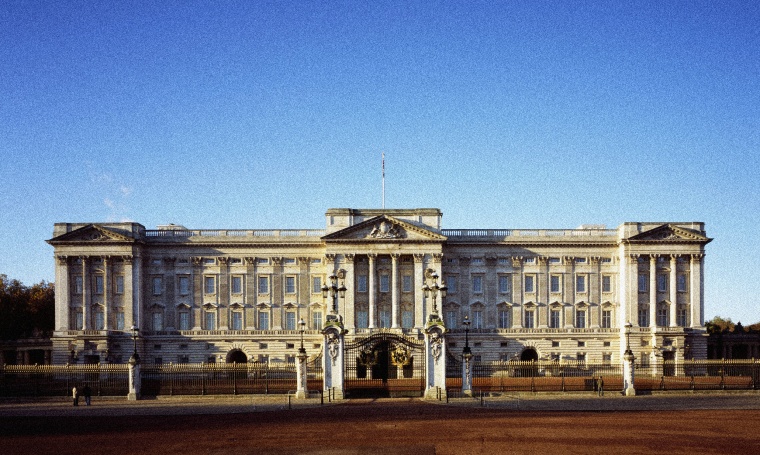In the latest chapter of problematic and racist things the British monarchy has done, a member of the royal household was forced to resign after interrogating a founder of a charity that combats violence against women about where she was “really from” at a Buckingham Palace event focused on domestic abuse.
A former lady-in-waiting to the late queen, godmother to Prince William, and (as of Tuesday) one of the incoming “Queen’s companions” — approached Ngozi Fulani at the event, hosted by Camilla, queen consort, and allegedly moved Fulani’s hair to inspect her name badge before embarking on her line of inappropriate questioning. (Important reminder, touching a Black woman’s hair without consent is sadly an all-too-common microaggression many Black women have spoken about; perceptions and treatment of Black hair are often undergirded by unspoken power dynamics.) Fulani was in attendance representing her charity, Sistah Space, which helps women of Caribbean and African descent who are survivors of sexual and domestic abuse.
Fulani posted a transcript of the conversation, which has since gone viral and was corroborated by Mandu Reid, leader of the British Women’s Equality Party, who witnessed the exchange and then later by the palace which investigated the incident and issued a somewhat strange apology. The woman has since apologized.
In Fulani’s account of the conversation, the woman badgered the guest with some variant of “Where are you really from?” approximately seven times. She reportedly even asked “What part of Africa are you from?” and “When did you come here?” as Fulani repeatedly replied that she is British, born and raised.
While the palace’s apology acknowledges “unacceptable and deeply regrettable comments” were made, it also strangely includes that “all members of the [royal] Household are being reminded of the diversity and inclusivity policies which they are required to uphold at all times.” It is concerning, though not surprising, that not making racist comments and not committing microaggressions are somehow part of “diversity and inclusivity policies” — and it speaks perfectly to just how incompatible the institution is with these broader values.
Yes, we should be outraged. But, no, we should not be surprised. The monarchy is literally built on empire. Its existence was largely a product of brutal and bloody colonialism — of the subjugation and exploitation of Black and brown people. And while, of course, the public should apply pressure to course-correct when transgressions are committed, we are also being unrealistic if we expect the institution to not be racist. Its racism has merely transformed over the centuries from explicit form, such as pillaging colonized regions of the world, to implicit forms, such as institutional racism and microaggressions — like badgering a Black woman about where she is "really" from.
Let us review some of the royal racism highlights of the last few years. Princess Michael of Kent was forced to apologize in 2017 for wearing a blackamoor brooch the first time Meghan Markle met the wider royal family. Blackamoor figures, first gaining popularity around the 13th century, fetishized and exoticized Black people. Then, of course, Meghan Markle explained in her explosive interview with Oprah that she was compelled to leave the royal family over racism, even recounting remarks by one unnamed royal family member about how dark her and Prince Harry’s child would be. And let us not forget Prince Harry's history of displaying racist behavior and language.
Sarah E. Gaither, an assistant professor of psychology and neuroscience at Duke University, explained in a piece for NBC THINK that microaggressions, such as questioning where someone is really from, are pernicious and can be incredibly harmful. She quotes research that shows over 94% of multiracial respondents in a survey on the issue report being asked this question, and, as she notes, “these types of encounters can be dehumanizing and ‘othering.’”
Speaking from personal experience, I can confirm this. I, myself, am biracial and as a British Pakistani, who has spent a significant portion of my life living in Britain, I am no stranger to such interactions, both in wider circles and more intimate settings. I’ve had countless questions about where I’m really from; I’ve had countless intractable, othering comments. I was told once by a family member that my brother, who was fairer than me as a child, was treated differently precisely because he appeared more racially ambiguous.
Of course, while this comment stung, it was also a refreshing affirmation of a lifetime of subtle and hard-to-identify encounters that often leave one feeling dehumanized, if even in a small way, and make it near-impossible to hold people accountable. And when people of color do call out such interactions, we’re often gaslighted, told that we’ve misinterpreted the interaction or we’re making a fuss out of nothing. This makes Fulani’s public account even more impressive in light of the Goliathan power imbalance.
National institutions like the monarchy are a fundamentally anachronistic machine not meant for the 21st century — like expecting a combustion engine to run on electricity. So, while we should demand more from such institutions (especially taxpayer-funded ones), we should also be in serious conversation about dismantling those which were built on the subjugation of nonwhite people.
